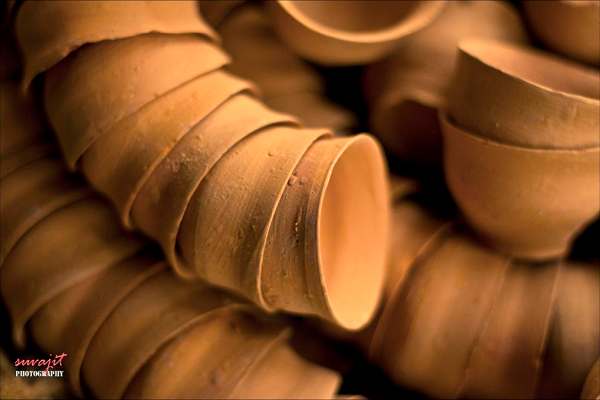FWP:
SETS == MUSHAIRAH
This is a delightful, cleverly framed mushairah verse. The first line carefully withholds all notion of what it might be that would break, and even any clear indication of who might be the bazaar-goer, so we have no clues at all. We have to wait in curiosity and suspense for the second line.
And in proper mushairah-verse style, the second line withholds its punch-word until the last possible moment. Even when we hear about the Cup of Jamshid, we can't guess what the other term of comparison will be. Then when we finally hear it, when all at once we 'get' it, the result is so amusing, so witty-- and, up to a point, so right. What price magical world-vision, compared to throwaway (self-recycling) convenience and a free mind? What's not to like, in a casual, lazy, elegant little charmer like this?
Compare {62,4}, another verse about buying cheap replacements from the bazaar. Then there's {79,6x}, which finds a light carefreeness preferable to the heavy burden of kingship. Similarly, in {210,2} the lover is happy to sell his fancy wine-drinking vessels.
Note for grammar fans: In the first line le aa))e can very intuitively be a masculine plural perfect (1a), read as the generalized 'they brought'. (It can't be 'we brought', since the speaker uses miraa for himself in the second line; it also can't be 'they would bring' since that would be le aa))e;N .) One could also read le aa))e as a singular subjunctive (1b); as we know, the masculine singular perfect ;Tuu;T gayaa can also be colloquially used as a subjunctive; for discussion, see {35,9}. But the subject then would have to be 'he' or 'she' or 'someone' in the third person singular, which is annoyingly pseudo-specific (a servant? a friend?). So I prefer the (1a) reading.

Hali:
How excellently he has preferred the cup of clay over the Cup of Jamshid cannot be sufficiently praised; and it is an entirely new idea, that has never been seen anywhere before.
==Urdu text: Yadgar-e Ghalib, p. 125